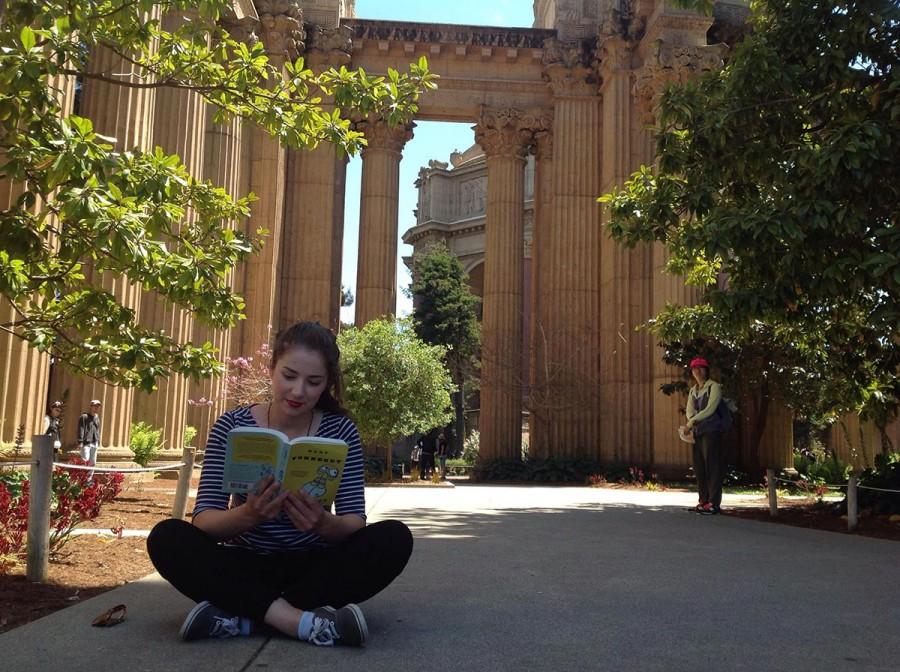Adults who don’t appreciate the young adult genre are a small minority
The young adult genre is worth more than it’s given credit for
More stories from Lara Bockenstedt
Photo by SUBMITTED
Lara Bockenstedt reads a book in San Francisco.
I hungrily leafed through a copy of “Bone Gap” Saturday over Thanksgiving break; a young adult (YA) book with rifts of magical realism and intense characters buzzing with life through adversity.
As of late, young adult books are some of the few that grab my attention. While I appreciate classic novels, adult mysteries and the like, I see a passion for the young adult genre as a common thread among my peers as well. The majority of them are adults, and who could blame them for reading a book categorized for younger versions of themselves?
I argue the young adult genre is a category not just for reluctant readers, but for those with an unquenchable thirst for books. Snobs who claim otherwise, I welcome you into the 21st century and encourage you to reconsider.
True, nothing can replace the power of Sartre or the truth in Dostoyevski. Authors such as Kerouac defined an era, but the escapism of young adult literature is undeniable. And there are cool, defining moments and truths in the genre as well.
Publishers Weekly cited over 55 percent of young adult readership is composed of adults. Published in Slate Magazine, Ruth Graham made statements such as “adults should feel embarrassed about reading literature written for children.” The shamers of this population are manifest in one of the more vicious articles written by a YA genre-hater like Graham.
Graham compares adults who prefer the YA genre to people who enjoy wallowing in kiddie pools.
Thankfully, the fact that publishers and hollywood profit from the YA genre shows that Graham is in the minority. While Graham might argue that intellectual stimulation cannot be found in the pages of uncritical YA books, she’s a quiet voice among a large crowd.
I argue that reluctant readers feel welcomed back to the world of reading with the genre.
For those who prioritize reading, even if they don’t find adequate amounts of intellectual stimulation, the YA genre should still be allowed a slot in the schedule. It fills the humanitarian aspect of the English world – connecting with others and how they identify their stories.
I firmly believe at all times, I should be reading a text that is educational (such as a newspaper,) a text that is intellectually stimulating (that copy of “Man’s Search for Meaning” I re-read a few weekends ago) and a text that is pleasing to read and emotionally triggering.
Over break, “Bone Gap” taught me more than I previously knew about beekeeping and Polish culture and mythology, all while keeping me entertained and breaking the boundaries between the three categories I had created for myself.
In truth, while Graham and her crew may continue to trumpet their opinions, I’ll be too immersed in a new YA book to listen.


